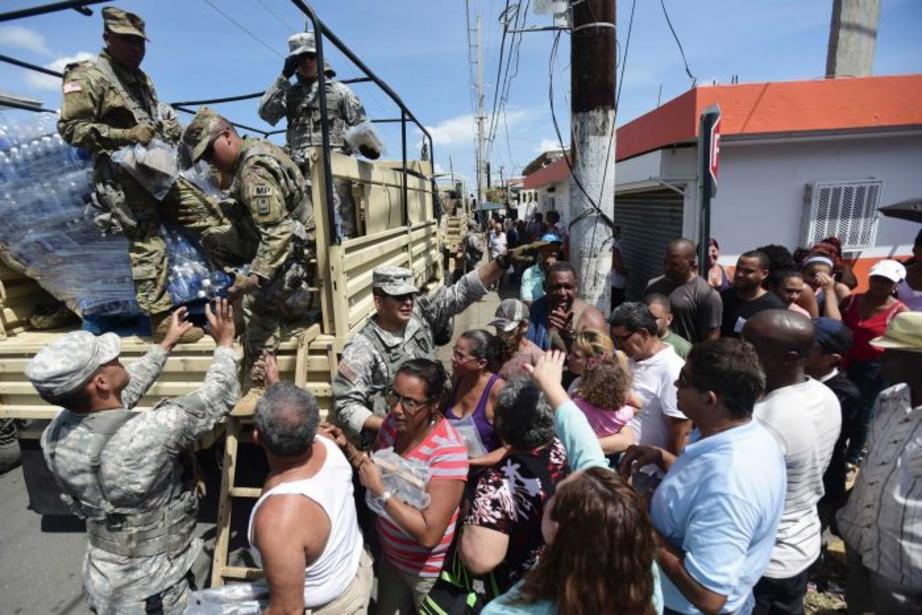Hurricane Maria: relief efforts struggle to reach Puerto Rico residents
It's been more than a week since Hurricane Maria ripped across Puerto Rico, devastating infrastructure on the island which is home to 3.4 million people.
Governor Ricardo Rossello called the devastation an unprecedented natural disaster.
Despite the fact US federal emergency management authorities and the military are stepping up relief efforts, the scale of the devastation is hard to comprehend.
Almost the entire island is still without power
It's not just hyperbole.
Take a look at this image of Puerto Rico from a satellite.
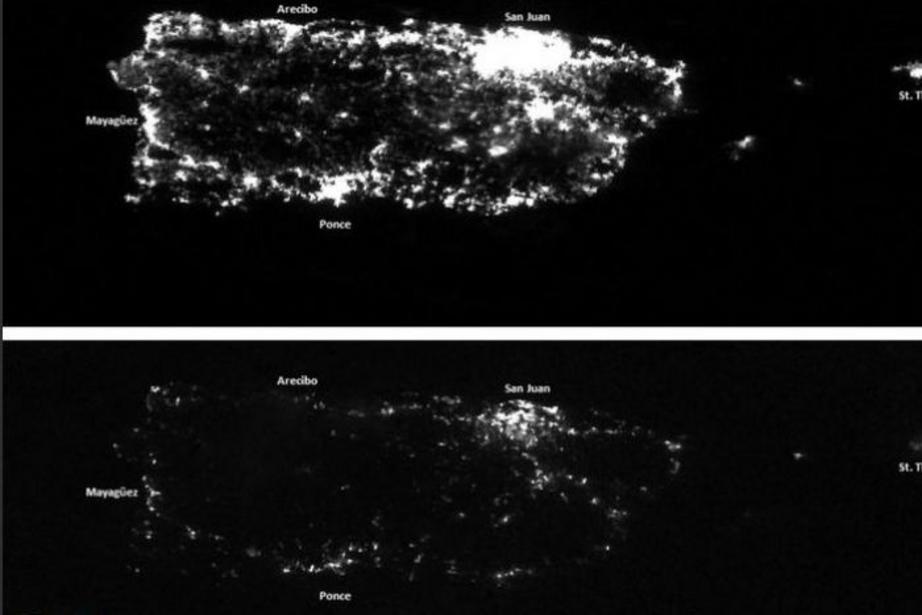 Satellite image from Jul 24 2017 shows Puerto Rico before blackout, followed by post Hurricane Maria image.
Satellite image from Jul 24 2017 shows Puerto Rico before blackout, followed by post Hurricane Maria image.
The top image was taken on July 24; the bottom, on September 24, with the island almost completely in darkness.
It means residents trying to escape the stifling tropical heat aren't able to use air conditioners, fans or even cold water.
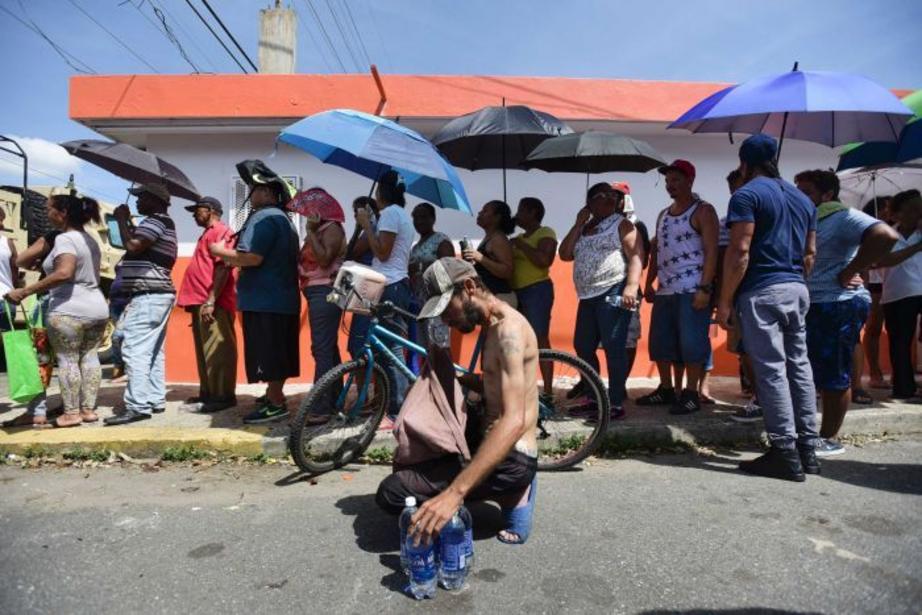 People affected by Hurricane Maria wait in line at Barrio Obrero to receive supplies from the National Guard, in San Juan, Puerto Rico
People affected by Hurricane Maria wait in line at Barrio Obrero to receive supplies from the National Guard, in San Juan, Puerto Rico
Communicating with the outside world is almost impossible
The US Federal Communications Commission says more than 91 per cent of cell phone sites in Puerto Rico are out of action.
The widespread power outages mean huge numbers of consumers are without internet or cable service.
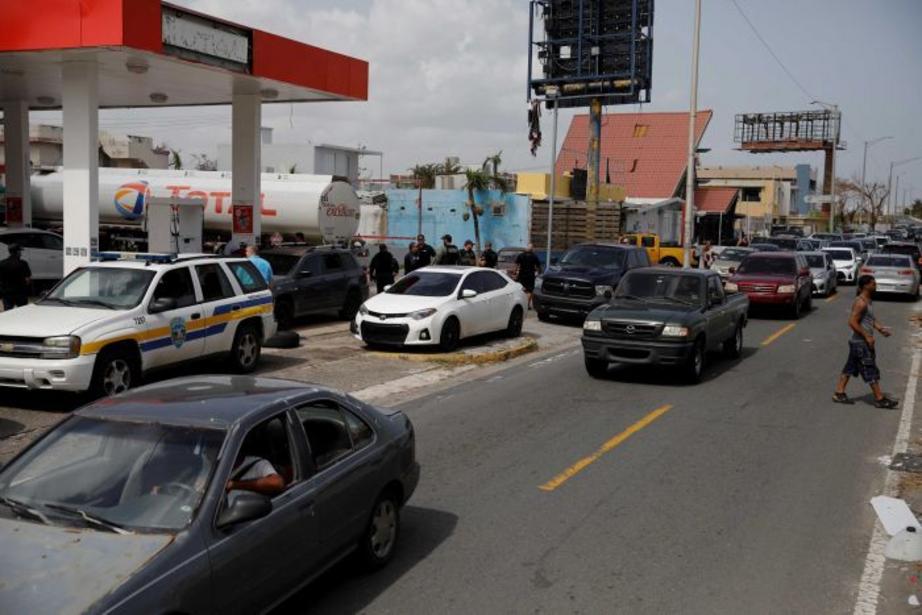 People queue to buy gasoline at a gas station after the area was hit by Hurricane Maria in Carolina, Puerto Rico September 26, 2017.
People queue to buy gasoline at a gas station after the area was hit by Hurricane Maria in Carolina, Puerto Rico September 26, 2017.
At least nine radio stations and one TV station in Puerto Rico also remain off the air, the FCC said.
Water and fuel are scarce
Desperate residents have waited hours in long lines for deliveries of diesel fuel to power generators and gasoline to fill empty automobile tanks.
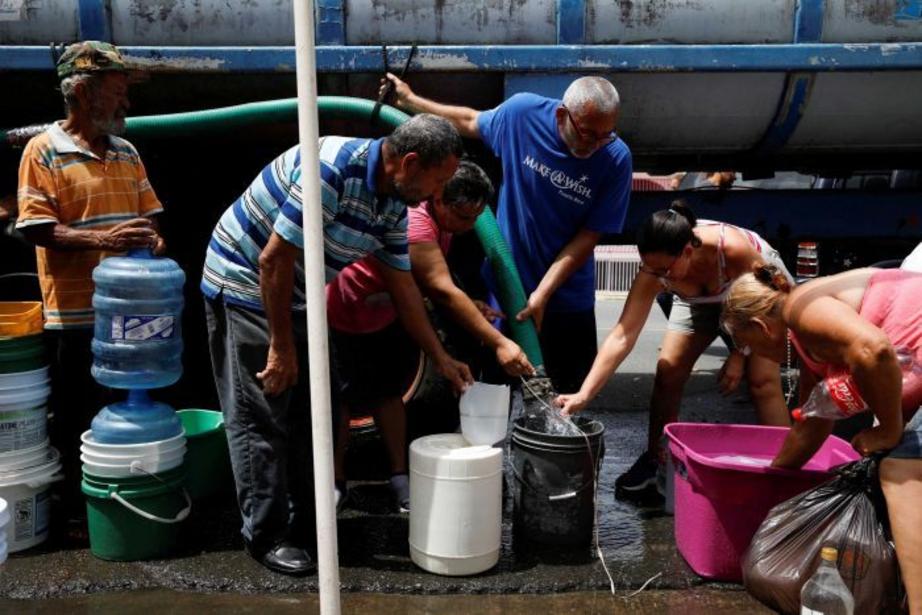 People queue to fill containers with water from a tank truck at an area hit by Hurricane Maria in Canovanas, Puerto Rico, September 26, 2017.
People queue to fill containers with water from a tank truck at an area hit by Hurricane Maria in Canovanas, Puerto Rico, September 26, 2017.
Some water-supply trucks have been mobbed.
On Tuesday, hundreds of people crowded around a government water tanker in the north-eastern municipality of Canovanas — 25 kilometres east of the capital San Juan — with containers of every size and shape after a wait that for many had lasted days.
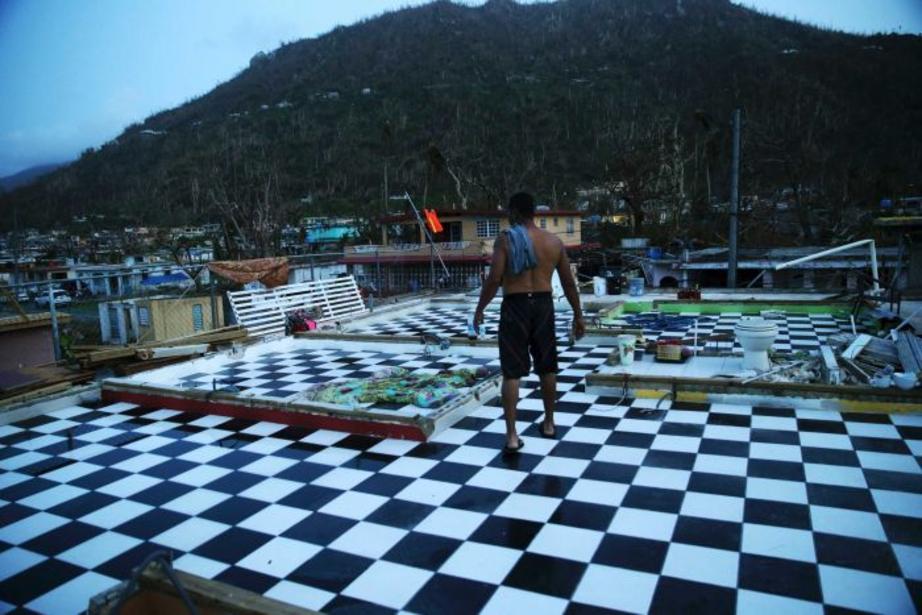 Nestor Serrano walks on the upstairs floor of his home, where the walls were blown off, in the aftermath of Hurricane Maria, in Yabucoa, Puerto Rico, Tuesday, Sept. 26, 2017.
Nestor Serrano walks on the upstairs floor of his home, where the walls were blown off, in the aftermath of Hurricane Maria, in Yabucoa, Puerto Rico, Tuesday, Sept. 26, 2017.
Medical experts said they were concerned about a looming public health crisis posed by the island's crippled water and sewage treatment system.
Help is slowly arriving, but residents say there's more that can be done
The US Federal Emergency Management Agency (FEMA) said by Wednesday (local time), it had delivered more than 4.4 million meals and 6.5 million litres of water in Puerto Rico and the US Virgin Islands since Maria ravaged the Caribbean.
But resident Maribel Valentin Espino and her husband say they have not seen anyone from the Puerto Rican Government, much less the FEMA, since the storm.
"People say FEMA is going to help us," she said.
"We're waiting."
Complicating things is a law requiring all goods shipped between US ports be carried by US-owned-and-operated vessels, known as the Jones Act.
Governor Rossello urged US President Donald Trump to temporarily waive the act to help aid.
"We're thinking about that," Mr Trump told reporters.
"But we have a lot of shippers and … a lot of people that work in the shipping industry that don't want the Jones Act lifted, and we have a lot of ships out there right now."
Video can be accessed at source link below.

